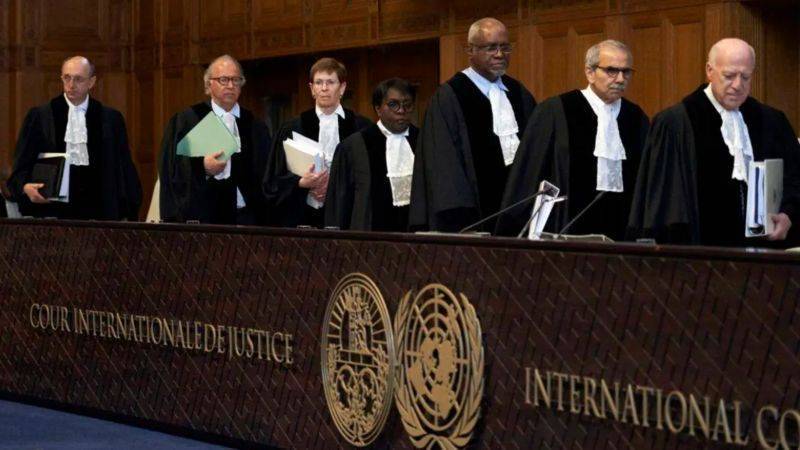The International Court of Justice (ICJ), the highest court of the United Nations, will issue a decision tomorrow, Friday, on whether to establish urgent proceedings against Israel regarding South Africa's allegations that Israeli military operations in Gaza constitute state-led genocide against the Palestinians. Joining the fifteen judges of the ICJ, also known as the World Court, in this case are a specially appointed judge from South Africa and another judge from Israel. Both are distinguished figures in their countries and have extraordinary personal histories.
**Dickgang Moseneke** - Moseneke (76 years old) is a senior retired judge from South Africa who fought against apartheid and played a pivotal role in the country's transition to democracy. He was imprisoned at the age of 15 for protesting against apartheid and spent 10 years in the notorious Robben Island prison, where he became friends with Nelson Mandela. Moseneke studied for his university degree while incarcerated and worked as a lawyer after his release. Mandela later asked him to help draft South Africa's interim constitution and supervise the first democratic elections. He was appointed to South Africa’s Constitutional Court in 2002, and in 2005 he became Deputy President of the Supreme Court, a position he held until his retirement in 2016. In an interview with Oxford University in 2021 about his biography, he noted that he had a deep sense of right and wrong as a child, stating, "Apartheid was indeed a great teacher, like most countries. It taught people inequality." According to Frans Viljoen, a professor of international human rights law at the University of Pretoria, Moseneke has a solid reputation as "a fair judge with a broad vision who tracks the facts of cases."
**Aharon Barak** - Barak (87 years old) is a Holocaust survivor, born in Lithuania in 1936 and formerly served as the Chief Justice of Israel. He is one of the few children who survived from the Jewish ghetto in Kaunas, central Lithuania, during World War II, describing his survival as a miracle. He stated, "Since that incident, I have never feared death." Barak was smuggled out of the ghetto by his mother, who hid him in a bag for the formal clothes being made there. He immigrated to Mandatory Palestine in 1947, a year before the establishment of the State of Israel. Barak served as Israel's Attorney General from 1975 to 1978 and was appointed to the Supreme Court in 1978, serving as its President from 1995 until his retirement in 2006. Barak is known for being a strong supporter of the Supreme Court and has been a vehement critic of Prime Minister Benjamin Netanyahu, whose efforts to modify the judicial system last year led to widespread polarization. In an interview with the Canadian daily Globe and Mail last November, Barak expressed his support for Israeli military operations in Gaza, stating, "I completely agree with what the government is doing." In response to a question regarding allegations that Israel is conducting acts of genocide in Gaza, Barak stated that the term should be used to describe the attacks on October 7th carried out by the Palestinian Islamic Resistance Movement (Hamas) against Israel, adding, "What we are doing is preventing them from repeating it."




